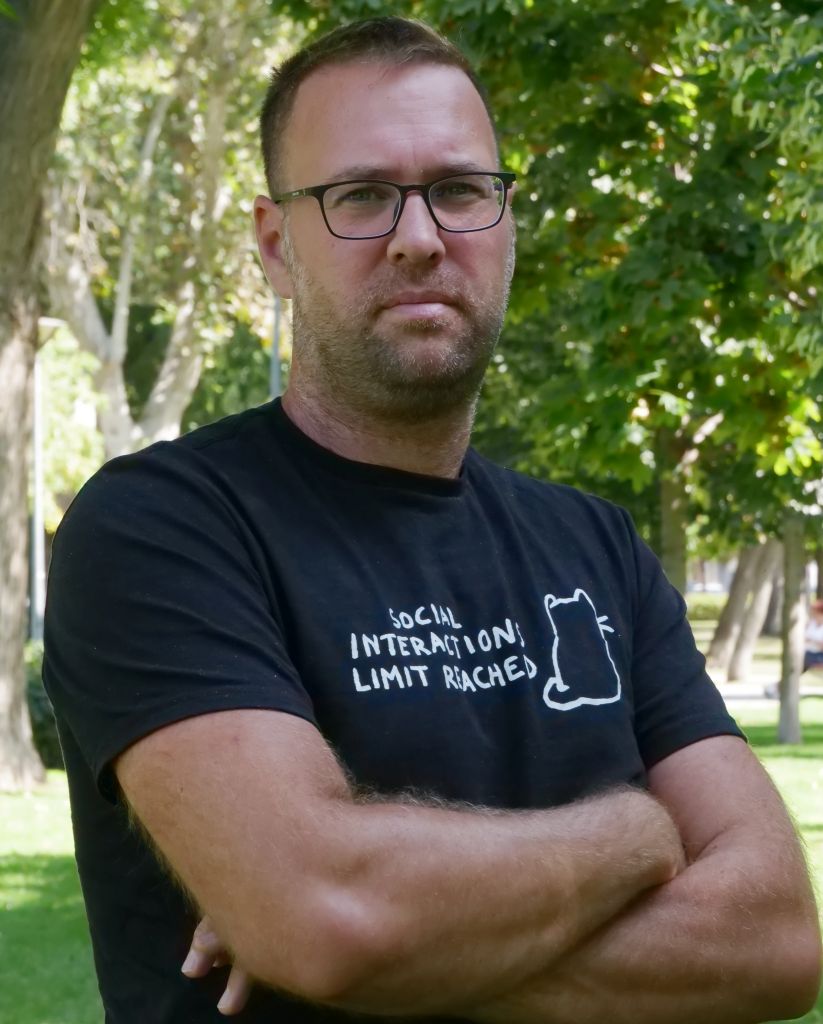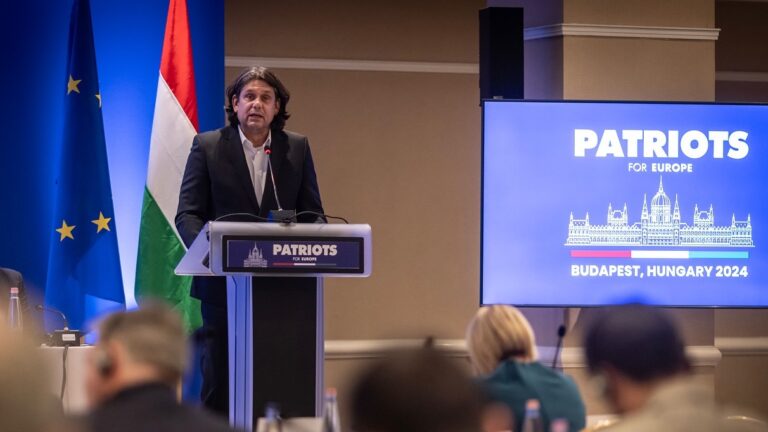The https://english.atlatszo.hu use cookies to track and profile customers such as action tags and pixel tracking on our website to assist our marketing. On our website we use technical, analytical, marketing and preference cookies. These are necessary for our site to work properly and to give us inforamation about how our site is used. See Cookies Policy
Database created by the EP Patriots group disproves attacks on EU-funded NGOs
The Fidesz party’s EP faction, Patriots for Europe released a list of “political activists funded by Brussels” through EU programs supporting NGOs. While the EP group frames the database as an exposé of a foreign-funded liberal network, in Hungary it actually shows that the largest funds went to a state-backed foundation, while the civil rights advocates criticized by the right-wing MEPs received only 0.3% of the total spending in the country.
“37,000 contracts worth 6800 billion forints of European taxpayers’ money: from now on, anyone can check who is being funded by Brussels with just a few clicks!” wrote Tamás Deutsch, Fidesz-KDNP MEP, on his social media page a few days ago. Well, we checked it out.

The website where the data was published is called NGO Transparency, created by Patriots for Europe, a political alliance in the European Parliament (EP) founded at the end of June 2024. Its members include nationalist, radical/far-right, and Eurosceptic parties such as the Austrian Freedom Party, the French National Rally, the Italian League, the Spanish Vox, and Fidesz. With 88 representatives in the 720-member EP, it is the third largest faction.
Critical NGOs targeted
According to Deutsch and other Fidesz politicians, this database reveals opaque funding of massive magnitude of NGOs critical of the national government. For example, Fidesz MEP Kinga Gál, posted that
“we demand transparency in the Brussels institutions. We publish on our website what the Commission has spent European taxpayers’ money on: €17 billion on 37,000 NGO contracts! These are not civil society organizations, but political activist networks that often work against national governments without democratic mandate. This must be made public immediately and stopped!”
Tamás Deutsch explained this in more detail on the state-owned radio Kossuth Radio, where he emphasized that
“the main organizer of the Budapest Pride received 88 million forints from Brussels in the years behind us.”
He continued:
“Another important organizer, the Hungarian Helsinki Committee, received 548 million forints, while the Society for Civil Rights (TASZ) received 44 million forints in funding from Brussels. The Hungarian branch of Amnesty International received 164 million forints from Brussels. The Aurora Civil Center, another organizer, received 28 million forints from the NGO that established it.”
Deutsch claimed that the funding these organizations, and others targeted by government politicians, adds up to HUF 8.5 billion (EUR 21.51).
State-run organization received the most EU funding
However, according to the Patriots own database, TASZ received 34 million, not 44, Amnesty International received 150 million instead of 164 million, and the Hungarian Helsinki Committee received 239 million instead of 548 million. In other words, Deutsch reported figures that were significantly higher than the actual data regarding organizations critical of the government and defending human rights. But even more than that was revealed by the data he cited.
In the list containing 607 entries for Hungary, the total amount of contracted support is EUR 353 million over four years. This means that the organizations on the list received EUR 88,56 million annually.
Although Deutsch highlighted a few advocacy organizations that received a negligible portion (0.3%) of the funding in his inflammatory Facebook post, it is worth looking at who received the rest of the large amounts of funding from “Brussels.”
Distribution of funds allocated by the European Commission to Hungarian civil society organizations between 2019 and 2024
The Tempus Public Foundation, an education funding foundation created by the Hungarian government, received the most money, EUR 291 million.
According to its website, Tempus is “a public benefit organization operating under the supervision of the Ministry of Culture and Innovation.”
They were responsible for the Erasmus student mobility program, but since the government’s so-called university model change (the outsourcing of universities to asset management foundations filled with government insiders) has stalled, they have been promoting the domestic alternative, the Pannonia Scholarship Program.
Minority Rights Group Europe and the Baptist Charity Service Foundation (with which the government signed a strategic cooperation agreement in 2021) also received more than €200,000, and ESSRG Nonprofit Kft., which conducts social and environmental research with a particular focus on sustainability, was also a big winner.
The Hungarian Ornithological and Nature Conservation Society, WWF Hungary, and the Hortobágy Nature Conservation Society are also at the top of the list. In addition, the International Humanitarian and Development Civil Alliance, founded in 2003 by the Hungarian Ocumenical Charity Service, also received EU funding. One of its goodwill ambassadors since 1998 has been Anikó Lévai, the wife of Prime Minister Viktor Orbán.
At the forefront of the list compiled by the Patriots are Széchenyi István University, the BAZ County Chamber of Commerce and Industry, and the Kislépték Association. The latter works to make it easier for small farmers and artisans in Hungary to thrive from a legal, administrative, and sales perspective, supporting community markets and sustainable local economic solutions.
The MEFS (Hungarian University and College Sports Association) and the Faith Church – a Pentecostal megachurch that endorsed Viktor Orbán – also received funding from Brussels.
Beneficiaries debunk Deutsch’s accusations
We sent Tamás Deutsch’s Facebook post about the grants to several of the organizations listed in our article and asked them what they thought about the Fidesz MEP’s claim that “Brussels is funding organizations engaged in political activities.”
On behalf of the Hungarian Helsinki Committee, András Léderer responded as follows:
“In addition to our reports, which comply with legal requirements, we have been publishing detailed information about our finances on our website for decades with a view to ensuring transparency, and we are proud of the grants we have won in international competitions. We are also proud of the fact that we have successfully represented our clients in more than a hundred cases before international courts against violations of the law by the Hungarian state. The necessity of our work is also demonstrated by the fact that every year thousands of Hungarians request and receive our free legal assistance. All of the professional materials we have published are public, and the findings contained therein are based on our experience gained in the course of our legal work, legislation, and data of public interest. The Hungarian government has been unable to refute these findings before the European Union bodies.”
The Hungarian Ornithological and Nature Conservation Society responded:
“We were involved in four projects during the period mentioned. All of the funding came from LIFE (Programme for Environment and Climate Action), the European Union’s only dedicated nature conservation fund, which is open to complex nature conservation projects regardless of organizational form. We are very proud that since Hungary became eligible to apply for this fund, our organization has been one of the most successful applicants, usually in broad partnerships with state organizations (especially national park administrations), local governments, and civil society organizations, often across borders. The projects mentioned above aim to protect the saker falcon, the great bustard and the red-footed falcon, as well as the Rákos viper, and we also had a project promoting social participation in nature conservation. This fund has made an outstanding contribution to the preservation of natural values in Hungary and, more generally, in the European Union over the past decades, so we consider its maintenance and expansion to be of paramount importance!”
The Borsod-Abaúj-Zemplén County Chamber of Commerce and Industry wrote briefly: “The project owner in the referenced supported program is the Ministry of Energy. BOKIK is one of 21 contributing partners.”
The Faith Church answered that their application was submitted to the European Union in 2022, that information about the details of the project can be found in publicly available places, and they also sent several links.
Written by Csaba Segesvári, translated by Zalán Zubor. The original Hungarian story can be found here. Data visualization: Krisztián Szabó. Cover image: Tamás Deutsch during the Patriots’ visit to Budapest on December 5, 2024 (photo: Patriots/Facebook)

